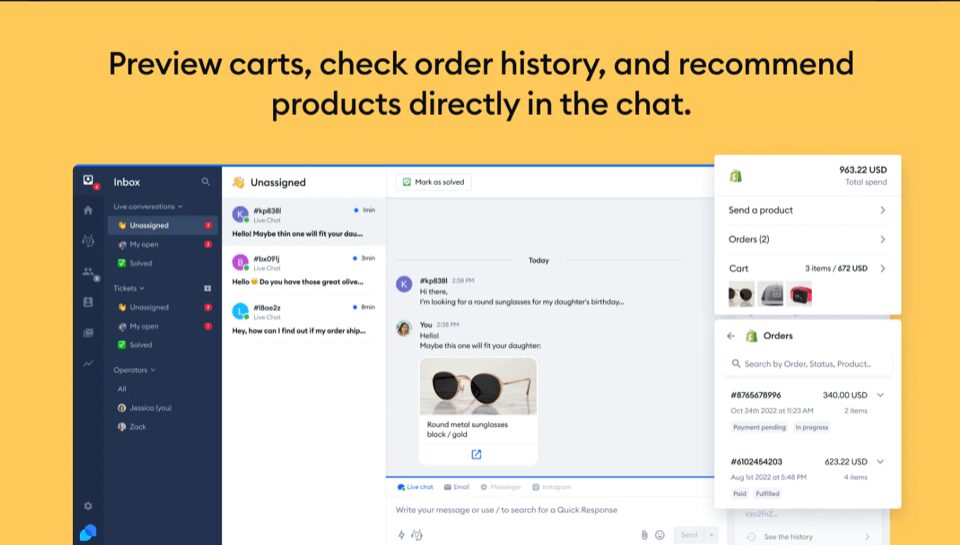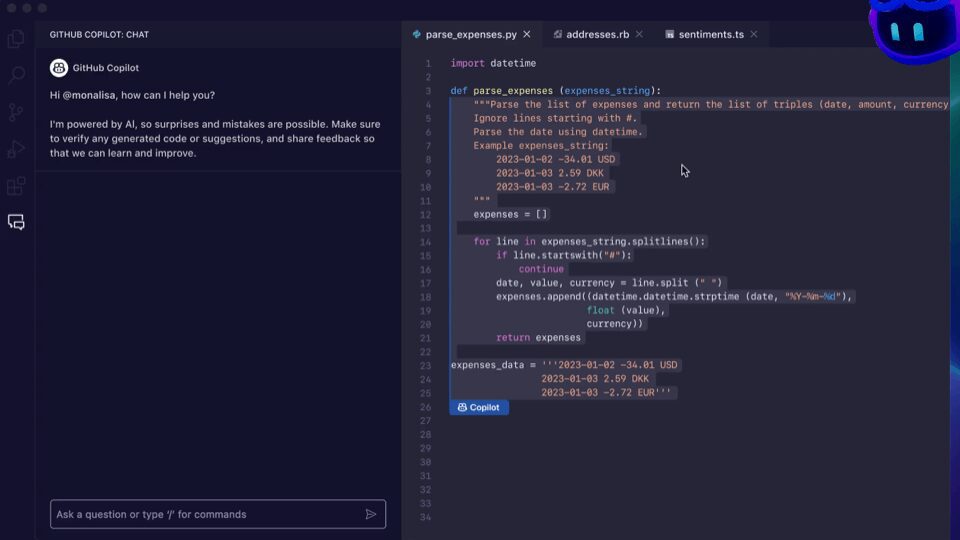Table of Contents
How AI Helps With Web Development
AI is a generational leap in technology that has prompted developers to take a new look at how they work. Everything from backend server management tasks to user-facing chatbots can now be automated in minutes, and the implications for businesses and web developers are staggering. Find out if the pros of AI outweigh the cons with this guide.

Frontend Web Dev
AI in frontend web development covers everything a visitor interacts with when using a website. This is effectively the ‘face’ of a store, so making it work well is a top priority for businesses.
- User Experience: Optimizing the user experience is one of the top concerns for frontend web developers, especially with the increasing demand for accessible and interactive websites. Developers can leverage the pros and cons of AI to completely personalize content delivery by analyzing usage data (time spent browsing and content preferences). For example, a user who has previously purchased a crime thriller novel on Amazon will see recommendations for other thrillers on consequent visits.
This also extends to accessibility. AI used in web development can understand and respond back to user voice inputs. A common example of this function is voice input for search and Amazon Echo. - Chatbots: Chatbots use AI to respond to human queries in a conversational manner. Natural Language Processing (NLP) has made creating chatbots an easy task for frontend web developers, and they’re a must-have for any website looking to scale. Smaller businesses that might not be able to afford around-the-clock customer service representatives can now use chatbots to solve most user queries. You might have seen Amazon use these to quickly hand out smaller refunds for defective products.
- QA: The pros of AI outweigh the cons when it comes to quality assurance. QA in web development can refer to processes like testing and debugging. Developers will run repeated tests on a website and plot metrics like website performance using, for example, the K-Nearest Neighbors model. This machine-learning model will then look for plot points that are outliers and flag them for the developer.
Experts can use AI in web development to quickly spot anomalies in website loading times and traffic drops to make sure they are always delivering the best possible experience for users.

Backend Web Dev
AI in backend web development is all about the machinery that powers the website behind the scenes. It includes all the different components that your average user will never see, such as logic, APIs, and massive databases containing consumer and website usage data. Backend developers are responsible for building up these different components and making sure they all work together smoothly.
The pros and cons of AI in backend development are just as notable as with frontend development. Artificial intelligence can completely revolutionize the way backend developers deal with databases and APIs. Let’s take a look at how it works:
- Optimized Development: AI and machine learning algorithms have completely changed the way developers approach coding. Algorithms can look at existing code and learn from it to actively improve new programmer inputs, and can even suggest alternative coding methods that might improve the overall functionality of the backend infrastructure.
Automated code generation is also worth mentioning here. Development consoles that integrate AI can now automatically generate generic code strings that are commonly used in backend development, saving developers tons of time and cutting down on silly mistakes that can cause annoying debugging issues down the line.
- Intelligent Scaling: Automation in AI web development does much more than just coding. Server management tools can now intelligently allocate resources such as network bandwidth and CPU priorities to the systems that need them the most. Automating such an intensive task significantly reduces backend latency and allows websites to process a higher volume of requests at a faster pace.
- Data Analysis: Backend developers have to work with massive databases daily. These databases are constantly being updated with new information, whether that’s user behavior trends or backend performance metrics.
When we talk about the pros and cons of AI, one of its biggest advantages for backend development is the ability to quickly parse through those huge databases. AI for web development can now create actionable reports that give us insight into how users are interacting with the website. In turn, developers can then use this feedback to further improve the website, creating a positive feedback loop that constantly improves the user and development experience. - Security: Security is a vital aspect of backend development. One breach can result in thousands of dollars in foregone revenue and many hours of development time spent in fixing and preventing future breaches.
With AI, web developers and cybersecurity professionals can detect cyber attacks almost as quickly as they start. For example, AI algorithms can look at network telemetry data and send a flag when they detect an increased number of packets being sent to the server in a Distributed Denial of Service (DDoS) attack. A faster warning gives professionals time to secure their data and prevent significant losses.
The Cons of AI in Web Development
A Worthy Replacement for Developers?
Most ‘pros and cons of AI’ discussions lean strongly in favor of AI because it makes life easy for developers. However, losing sight of the disadvantages and plunging headfirst into automated web development can be dangerous.
As powerful as it is, AI still can’t fully replace the ingenuity and problem-solving abilities that expert web developers bring to the table. Capable developers combine their understanding of business needs, user needs, and web development to create a final product that businesses can fully rely on. At its current rate of evolution, artificial intelligence will continue to be more of an assistive tool in web development – at least for the near future.
Additionally, the inherent bias that comes with AI decreases its accuracy. Biased or incomplete datasets result in the AI making incorrect/suboptimal decisions. This means that businesses always need to have a knowledgeable developer who can evaluate AI-assisted code for errors and inaccuracies.
How To Master AI in Web Development
- AI Tools for Web Dev: If you’re familiar with the pros and cons of AI, you can go beyond ChatGPT and truly level up your game with lesser-known tools. For instance, TensorFlow is a useful library that gives developers the power to run machine learning models right in their browsers. This library can be used to quickly create robust chatbots and debugging algorithms.
CodeWP is another AI-powered tool that can automate critical DevOps work like deployment and monitoring for backend WordPress developers.
On the design side, web devs can use tools like Uizard to turn rough UX designs into functional code. Even designers that don’t know how to code can use this tool for fast prototyping. - AI Assistants: In web development, AI can become an active partner if used well. AI assistants have already become so popular that over 55% of developers are using them for everyday coding. Powerful assistants like Github Copilot automatically provide feedback and suggestions on code and can help web developers quickly pick up new frameworks and skills. Copilot can also streamline dev workflow by automating mundane tasks and taking care of debugging and monitoring. Newer tools like Adobe Sensei are changing our perceptions of the pros and cons of AI by even providing creative inputs for the web dev process, including features like AI-powered graphic design and prototyping.

Github Copilot
What Does The Future of Web Dev Look Like?
While no one can predict another generational leap in AI, it’s fair to say that it will only continue to get incrementally more accurate as time goes on. For instance, artificial intelligence could be able to generate personalized code for an entire server management API instead of just bits of predictive code strings. We can already see this happening with GPT-4 writing rough code after detailed prompts.
If we’re talking about the distant future of AI in web development, we can extend this automation to entire websites. We could potentially see websites that change and adapt in real time to user inputs, with fully modular menus, fonts, and graphics.
The pros and cons of AI aside, developers today need to understand the tools of tomorrow to create high-performing websites. If you need help developing a great website for your store, reach out to Coalition Technologies today for a free strategy review. Our web development and SEO experts work hand in hand to create powerful websites that consistently rank well.


